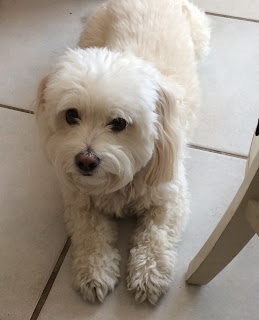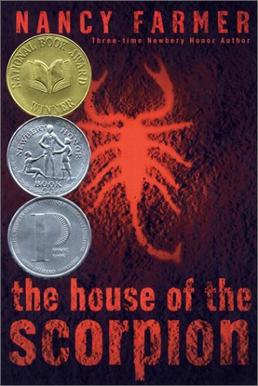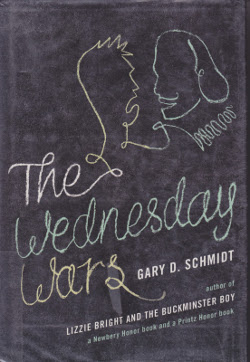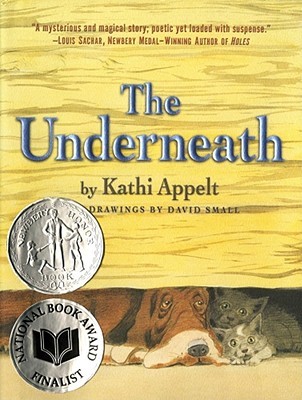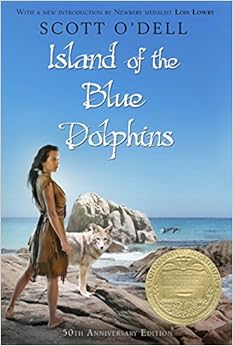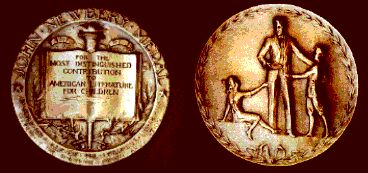
Has it ever struck you as interesting that English teachers, especially high school English teachers, analyze the same set of books with their students every year? My English teacher recently informed my class that the literature he is teaching this year is the same set of literature he taught last year, and the year before that, and the year before that, etc. Why is that? How is it that a specific set of literature can be so meaningful to a teacher that they are capable of teaching the same set of literature to hundreds of students for several (*cough* 30 *cough*) years?
The first novel analyzed was The Once and Future King by T.H. White. I have realized that my English teacher analyzes this novel every year because the truths regarding humanity and civilization addressed throughout the novel are not only relevant to the medieval ages, nor the year of publication, but now and forever. Humanity is predictable and because humanity is predictable, this novel is relevant to the lives of those from when it was first written, to modern times, and forever into the future. (Hence the name, "The Once and Future King.")
If you have read the novel The Once and Future King and are interested in my analysis of decency and civilization within the novel, I posted my synthesis essay below:
The Relationship of Decency and Civilization
“Each person has inside a basic decency and goodness. If he listens to it and acts on it, he is giving a great deal of what it is the world needs most. It is not complicated but it takes courage. It takes courage for a person to listen to his own goodness and act on it.”
Pablo Casals
Pablo Casals
Although the perception of humanity as decent is admirable, in relation to the novel The Once and Future King, Arthur was unable to effectively establish civilization because he maintained this faith in the decency of man. This ideal, represented through his statements and actions, influences his reign. Throughout various texts, the authors outlined and characterized the consequences of perceiving man as genuinely and inherently decent. Therefore, because Arthur maintains this perception of humanity, his actions often correlated with the consequences and conditions described within these texts.
Although Arthur consistently maintains faith in the decency of man, it is not until the conclusion of the novel, The Once and Future King, that Arthur recognizes and understands this underlying constant during his reign. Reflecting upon the lessons he learned through experience, Arthur recounts, “He had been taught...that man was perfectible: that he was on the whole more decent than beastly: that good was worth trying: that there was no such thing as original sin” (White, 628). Thus, as exemplified through this quotation, Arthur believed that man, inherently decent, was not capable of wickedness and immorality. Consequently, Arthur attributes his failures at establishing civilization not to the basic immorality of the knights themselves, but to external influences - in this instance, his own, ineffective methods of unification. “[The] goodness of man...deludes people into thinking that they are always victims, never villains...It dismisses responsibility...It can excuse any crime, because it can always blame something else” (The Enduring Revolution). Therefore, though Arthur intended to unite his knights under an established system of morality, because he altered the dynamic between his knights and morality rather than developing their basic character, he encouraged the belief that the knights were victims of external evil and not the villains themselves. By fostering this belief within his knights, Arthur excused their wrongdoings and allowed the knights to attribute evil to their environment. John Eldredge, the author of the nonfictional text, Epic, emphasizes that because God provided all human beings with the both ability to love and to reject Him and morality, God created life’s greatest enemy - the tendency of the individual to excuse and disregard indecency and immorality. “[People] don’t live as though the Story has a Villain...the incarnation of the very worst of every enemy you’ve met in every other story” (Eldredge, 39). As Eldredge lists a series of vile incarnations of evil, it is apparent that individuals often excuse and disregard the greatest evils in order to preserve their own morality - or lack thereof. Therefore, in relation to The Once and Future King, because Arthur allowed his knights to live as victims and not villains, his knights never learned to address the vile incarnations of evil, and the evil of their own immorality. Therefore, because Arthur regarded his knights as beings of decency and victims of a cruel environment, he allowed the force of immorality to reveal itself through the consequential actions of the knights later within the novel.
Though Arthur consistently attempts to establish civilization, his last attempt, a codified system of moral principles and policies, was ineffective because he continued to maintain faith in the decency of man. Believing that “human nature [could] be perfected by government,” as Arthur attempted to bind the force of might through law, his faith in the decency of man influenced his codification of evil. This is so because although this established system of laws addressed individualized immorality, it did not directly address the ethical conduct of organized groups.“The Principle of Might had sprung up behind him in another shape - in the shape...of numerous armies insusceptible to individual laws. He had bound the might of units, only to find that it was assumed by pluralities” (White, 629). Therefore, though a strict system of laws temporarily prevented the materialization of immorality, the individualized nature of Arthur’s system of laws could not withstand the force of organized groups. As Arthur attempted to establish civilization through the foundation of a codified system of law, “[He] pledged to move the world, but could only stain it with blood” (The Enduring Revolution). Arthur intended to bind the force of might through the regulation of the immorality of individuals, but might materialized in violent war and conflict. As brutal wars erupted throughout Europe under Arthur’s reign, all previous moral progress from the codification of evil was contradicted. Furthermore, as outlined in “If you believe that people are basically good,” because Arthur perceives man as basically decent, he did not reinforce his code of laws with religious morality. “The crowd that believes in innate human goodness tends to either be secular or to reduce God and religion”(If you believe that people are basically good). Consequently, Arthur's systematic code was unsuccessful because of its individualized, secular nature. However, if Arthur maintained a perception of inherent decency in men, and not individuals, he may have developed the character of humanity as a plurality - rather than improving civilization through an individualized system of law. “The world in all its beauty shall be ours again - forever...And it’s the word ours that pierces me” (Eldredge, 84). Cited from Epic, this quotation indicates that in the instance humanity possesses morality collectively, the world in its beauty shall be that of humanity. Therefore by practicing collective morality, the true beauty of the world is revealed to humanity - the beauty of morality. If Arthur had established an ethical code that was influenced by his religious values and also addressed pluralities instead of individuals, Arthur may have succeeded in establishing civilization. However, his faith in the basic decency of man prevented him from effectively establishing civilization.
As Arthur conceptualized the Round Table, the basis of which was human decency, although he acknowledged the presences of might and immorality, he attempted to redirect these forces rather than directly improving the character of his knights. After Arthur had established the Round Table, he instructed his unified knights to convert their right into morality and act accordingly. “He had sent out the men of might to rescue the oppressed and to straighten evil…[until] the ends had been achieved, but the force had remained upon his hands unchastened” (White, 629). Reflecting upon his experience as ruler, Arthur recognizes that rather than emphasizing moral development, in order to redirect the force of might - he redirected the knights that practiced might over morality. Believing man was basically decent, Arthur allowed these knights to distinguish between might and morality. Thus, Arthur did not influence the force of immorality itself, but instead harnessed and redirected might. As Arthur allowed his knights to subjectively and individually distinguish might from morality – he fostered the development of moral relativism within the knights. This moral relativism excuses all actions of immorality – as one individual’s interpretation of morality often deeply contrasts with another. According to Mark Twain, the capability to individually determine distinction is the greatest infliction upon man. Thus, because no one perception of morality is superior to another, all actions - even those that are wicked - are excused as moral. As Mark Twain emphasizes, “The infliction upon man [is] of the Moral Sense: the ability to distinguish good from evil; and with it, necessarily, the ability to do evil; for there can be no evil act without the presence of consciousness of it in the doer of it” (The Damned Human Race). Twain concludes that evil actions cannot be committed without an evil conscious. Twain also contradicts the notion of moral relativism – as the Moral Sense man was afflicted with was not intended to be individually and subjectively determined. Rather, this Moral Sense finitely distinguishes morality from immorality - without the loose interpretations of morality from secular society. Therefore, because Arthur established the Round Table on the decency of man and fostered the development of moral relativism, he allowed society to “[abandon] its transcendent values...each individual’s moral vision [became] purely personal and finally equal,” (The Enduring Revolution). Consequently, Arthur not only fostered moral relativism, but the notion that all interpretations of morality are equally valid. Therefore, because Arthur established the Round Table on the decency of man and also enabled the development of moral relativism – he was unsuccessful in establishing civilization. Arthur’s civilization degenerated into an amalgamation of individual moral perceptions. Thus, Arthur’s faith in the decency of man caused the development of moral relativism and the equality of moral perceptions, and consequently prevented the establishment of civilization on the principles of morality.
Although Arthur was correct in his intent to establish civilization, because he maintained an unwavering faith in the decency of man, Arthur was incapable of successfully establishing a civilization of true virtue and morality. Though Arthur was able to physically unite his knights – this unity was not a perfect civilization. Arthur aspired to establish civilization, but each attempt at civilization was counteracted by the materialization of immorality and might. Therefore, although Arthur often improved civilization, it was always short of perfection. In the ninth book of the Republic, as Glaucon converses with Socrates, he states: “But the city whose foundation we have been describing has its being only in words; there is no spot on earth where it exists.” Paralleling this statement, though Arthur conceptualized a perfect, moral civilization, this conception did not develop into a physical reality. Socrates replies: “No; but it is laid up in heaven as a pattern for him who wills to see, and seeing, to found that city in himself. Whether it exists anywhere…is no matter.” Thus, Socrates emphasizes that although a perfect civilization may never be physically established, Arthur, a man of decency, was capable of establishing perfect civilization within himself.


